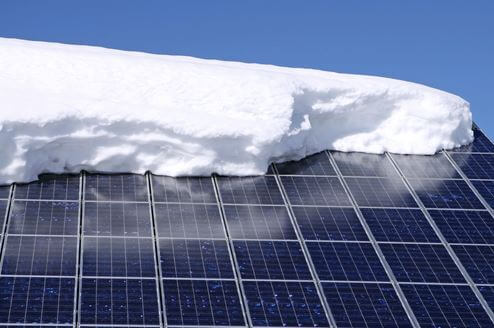Senate Version of Tax Reform Would Slash Renewable Energy Investment Opportunities, Jobs in Solar

• It’s historically proven to be false, given our experience with Reaganomics in the 1980s, and
• It defies common sense, or at least the sense required of any small person person if he is to succeed. In the late 1990s, I had well over 100 people on my payroll, and I remember my thinking on hiring new people with great clarity: the only valid reason for my taking on a single new person was delivering against a promise I had made to a client. More client work: more jobs. More profit (from whatever source): I fatten my portfolio (normally by purchasing stock in clients’ companies).
OK, let’s move on to the today’s topic, which is one of the less visible features of the proposed tax reform: a significant reduction in the value associated with tax equity investing, which is the basis on which a significant percentage of large solar projects go forward.
To grossly oversimplify, the tax equity investor puts up about one-third of the total costs of the project, in exchange for 99% ownership for the first five years, at which time he’s bought out by another entity. Under IRS rules, this entitles the investor to 99% of whatever profit may be generated in those early years, and, more significantly, 99% of the investment tax credits (ITCs), currently running at 30% of the total investment.
As we’ve heard, Senate Republicans have succeeded with their overhaul tax bill, which, again, contains critical implications for renewable energy. From this article:
“If this bill were to be enacted exactly as written in the Senate, it would have extremely negative consequences for renewable energy investment and job creation in the United States,” said Greg Wetstone, CEO at the American Council on Renewable Energy (ACORE). “Suddenly credits that had substantial value would face an environment where they have little if any value at all.”
In fairness, this is probably an unintended consequence of the Republican congress; the intended consequences, i.e., making the rich richer and everybody else poorer, sicker, and less educated, are terrible enough.

It may also be a deliberate move by the GOP to stifle green energy. The Koch brothers who are very influential in the GOP have made a priority of crushing solar energy by trying to end net metering rules in places like Nevada. I’m sure they have their staff looking for other ways to keep oil as the dominant energy in the US.
Oh, of course, it could be deliberate. We’re talking about people who sponsor law suits against the states in an effort to kill RPSs (renewable portfolio standards).
Greed is not good.